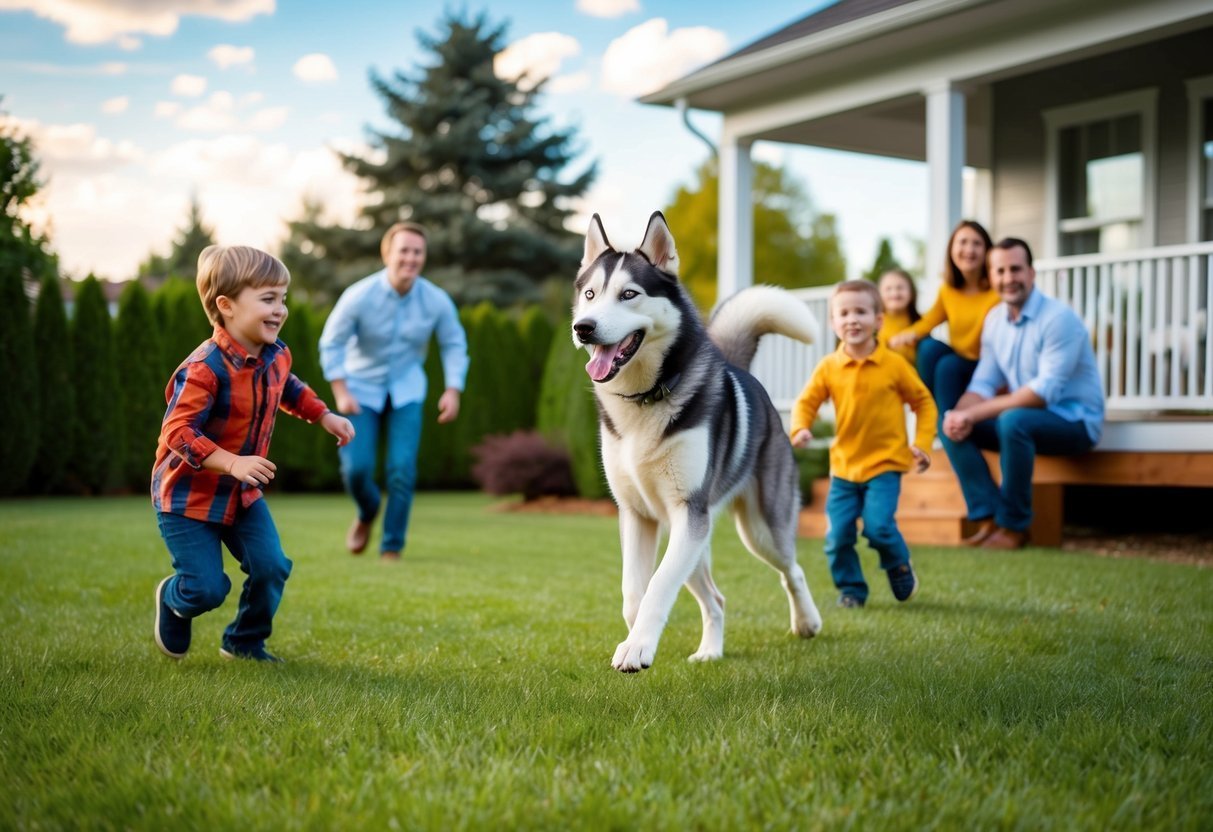Choosing the right dog for your family can be a tough decision.
Each breed has its unique traits and needs, especially playful and energetic ones like Huskies. Understanding if a Husky is the perfect match for your family will help you create a happy and fulfilling life together.
Huskies are known for their loyalty and intelligence.
But, they also need specific attention.
You’ll want to consider factors like activity level and social needs to see if they fit into your lifestyle.
By recognizing the signs that a Husky is right for you, you can ensure a great home for both you and your future furry friend.
Friendly temperament
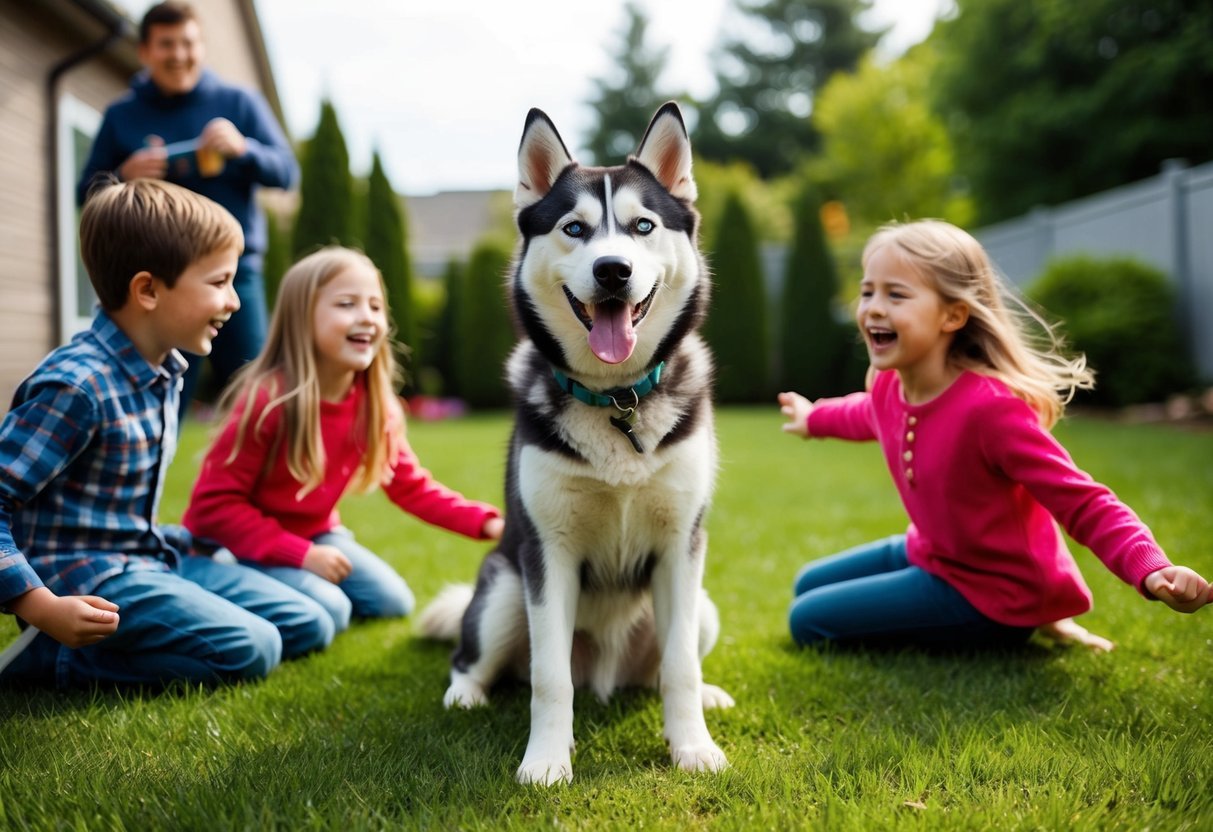
Siberian Huskies are known for their friendly and playful nature.
They often get along well with people and other pets.
This makes them great companions for families.
You’ll likely find that Huskies enjoy being around children.
Their fun-loving personality can keep kids engaged and entertained.
They are social dogs that thrive on interaction.
These dogs are typically very affectionate.
They love to be included in family activities and enjoy spending time with their owners.
You might notice them giving you attention and wanting to play.
While Huskies can be energetic, their friendly demeanor helps them fit well into a lively household.
They usually greet visitors joyfully, making them a welcoming presence in your home.
This friendliness can bring a lot of joy to your family life.
Energetic exercise needs
Huskies are known for their boundless energy.
If you’re considering adding one to your family, be ready for their exercise needs.
On average, a Husky needs at least 1 to 2 hours of vigorous exercise each day.
This isn’t just a casual stroll around the neighborhood.
They thrive on activities that allow them to run, jump, and explore.
These dogs love to play and can really benefit from structured activities.
Think about taking them for a run, hiking, or even playing fetch in a big yard.
The more you engage them, the happier they’ll be.
Keep in mind that Huskies were bred as working dogs.
They need regular physical activity to stay healthy and mentally stimulated.
Without enough exercise, they can become bored and may engage in destructive behaviors.
So, if your family enjoys outdoor activities and can keep up with a playful pup, a Husky might just be the right fit for you!
Strong pack mentality
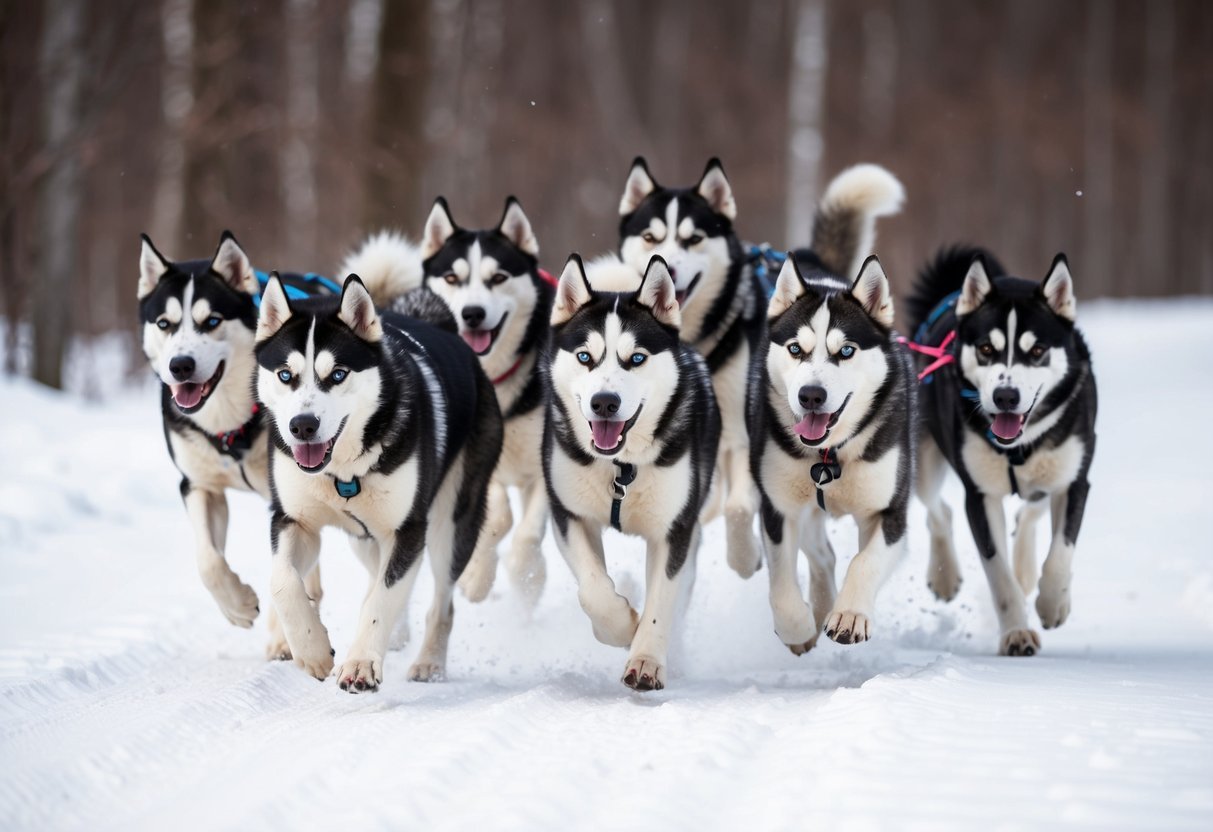
Huskies are known for their strong pack mentality.
This means they thrive on social bonds, both with other dogs and with you.
When you bring a Husky into your home, they see your family as their pack.
The pack mentality brings with it loyalty and affection.
Your Husky will bond closely with you and your family members.
It’s important to note that they feel safer and happier when they know their place in the family.
With a strong pack mentality, your Husky may also display protective behaviors.
They often alert you to strangers or any changes in the environment.
Establishing a loving relationship helps them feel secure in their role.
Training is key.
A Husky needs clear guidance to understand their position within the pack.
Consistent training can strengthen your bond and help them develop good behavior.
Creating a stable environment fosters trust and loyalty in your Husky.
This strong sense of pack identity makes Huskies great family pets if you are ready for the commitment.
They will reward your care with love and companionship.
4) Grooming requirements
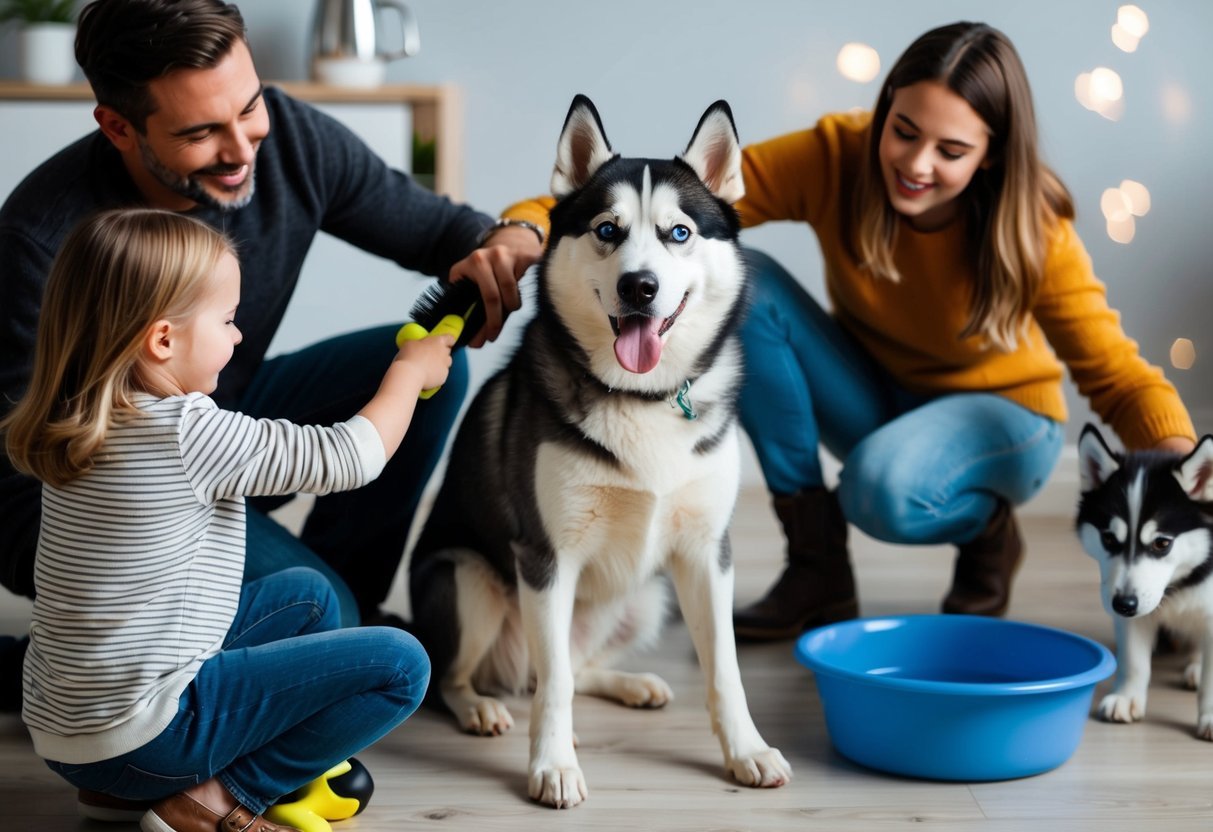
Taking care of a Husky’s coat is important.
They have a double coat that sheds quite a bit, especially during seasonal changes.
Regular brushing will help manage this shedding.
You should brush your Husky at least 2-3 times a week.
During shedding seasons, more frequent brushing can help reduce hair around your home.
A good quality shedding brush makes this task easier.
Huskies don’t need haircuts like some other breeds, but you should still give them baths occasionally.
Using a gentle dog shampoo can keep their coat clean and healthy.
Pay attention to their nails too.
Regular nail trimming is necessary for their comfort and health.
If you can hear their nails clicking on the floor, it’s time for a trim.
Don’t forget about ear cleaning and dental care.
These are important parts of grooming that often get overlooked.
Keeping their ears clean helps prevent infections, while dental care maintains their overall health.
Grooming your Husky can be a great bonding time.
With patience and love, both you and your dog can enjoy this routine.
Understanding Husky Temperament
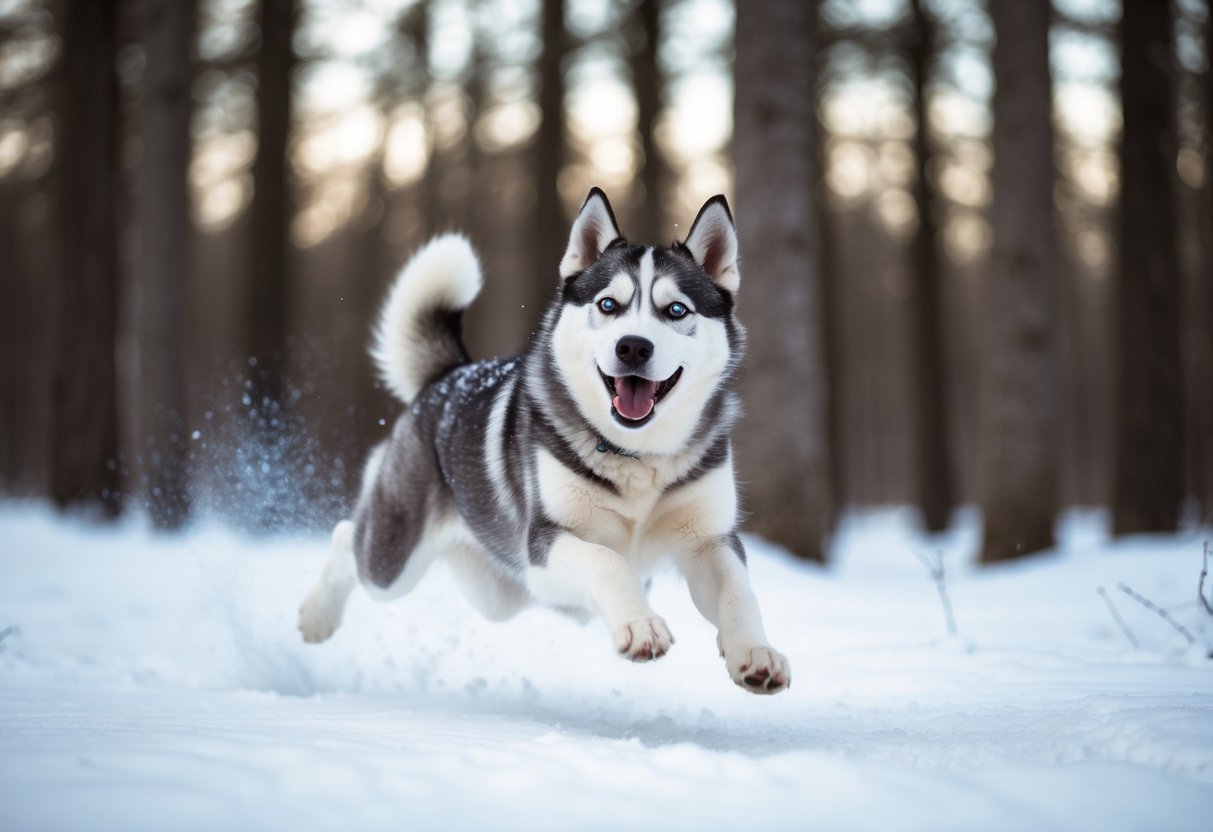
When considering a Siberian Husky, it’s crucial to know their unique temperament.
They are known for being energetic and playful.
Additionally, these dogs thrive with consistent training.
Let’s dive into these important traits.
Energetic and Playful Nature
Huskies are full of energy.
They love to run, play, and explore.
This breed needs plenty of physical activities to stay happy and healthy.
Daily walks, playtime in the yard, and engaging activities are a must.
Without enough exercise, they can become bored and may exhibit destructive behaviors.
Their playful nature makes them great companions.
Huskies enjoy games like fetch and tug-of-war.
They also have a friendly attitude, making them good with kids and other pets.
However, remember that this playfulness can sometimes get a bit wild, so supervision is important during playtime.
Need for Consistent Training
Training a Husky is essential for a well-behaved pet.
They are intelligent dogs but can be quite independent.
This means they might not always listen the first time.
Starting training early is key.
Use positive reinforcement techniques such as treats and praise.
Huskies respond well to friendly and motivating methods.
Keeping training sessions short and fun helps maintain their interest.
Regular socialization is also important.
It allows them to interact with other dogs and people, shaping their behavior positively throughout their lives.
Family Lifestyle Considerations
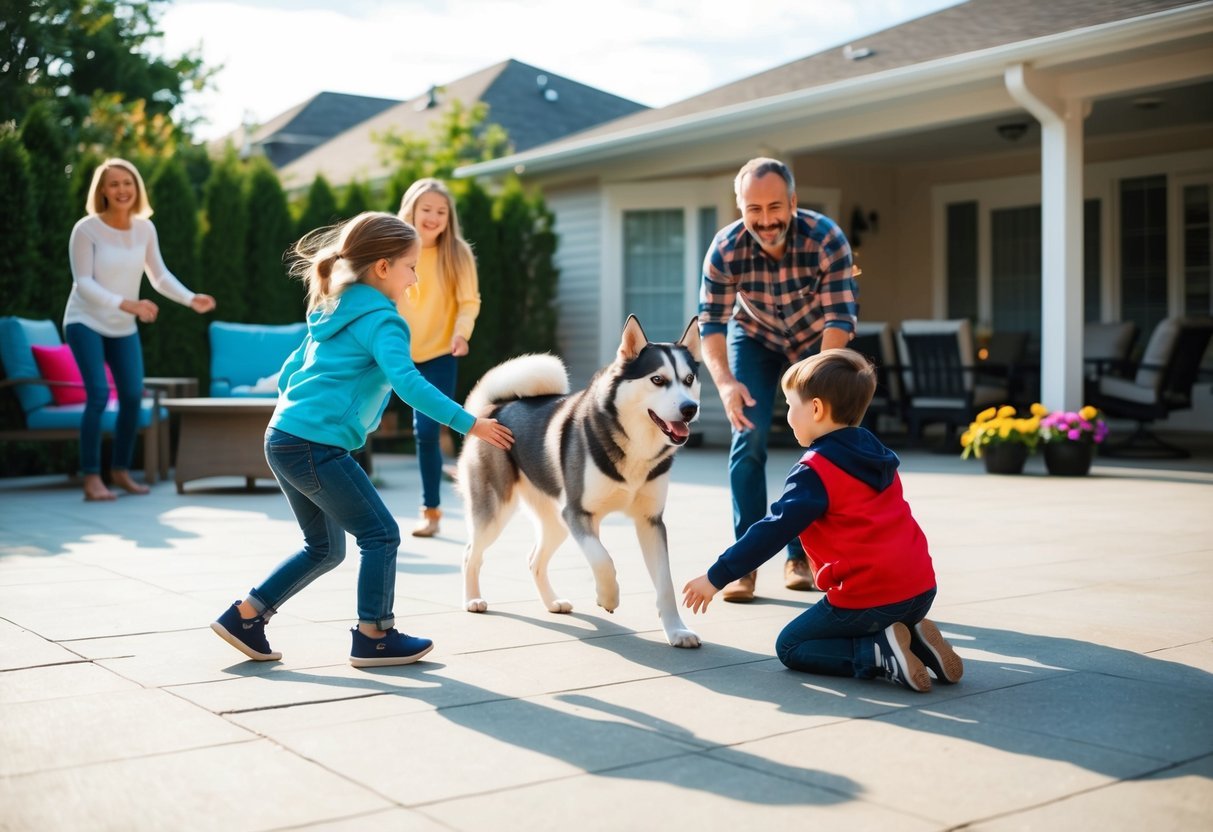
When choosing a Husky for your family, think about your living space and how active your lifestyle is.
Huskies need room to roam and play.
They may also have specific dynamics to consider if you already have pets.
Space and Exercise Needs
Huskies are energetic dogs that require a lot of space.
They thrive in homes with large yards where they can run freely.
If you live in an apartment, a Husky might not be the best fit unless you can commit to daily walks and trips to dog parks.
Exercise is non-negotiable for Huskies.
Expect to spend at least an hour each day on activities like walking, jogging, or playing fetch.
If your family enjoys outdoor adventures, a Husky will keep up with you.
Lack of exercise can lead to boredom and destructive behavior, so make sure you’re ready for an active lifestyle.
Compatibility with Other Pets
Before bringing a Husky into your home, consider how they will get along with other pets.
Huskies have a strong prey drive, which means they may not integrate well with smaller animals like cats or small dogs.
If you have other dogs, monitor their interaction closely at first.
Some Huskies can be social and friendly, while others might be independent and stubborn.
Gradually introducing your pets and ensuring they are well-supervised can lead to a happy multi-pet household.
Always be prepared for some adjustments as they adapt to each other.
Frequently Asked Questions
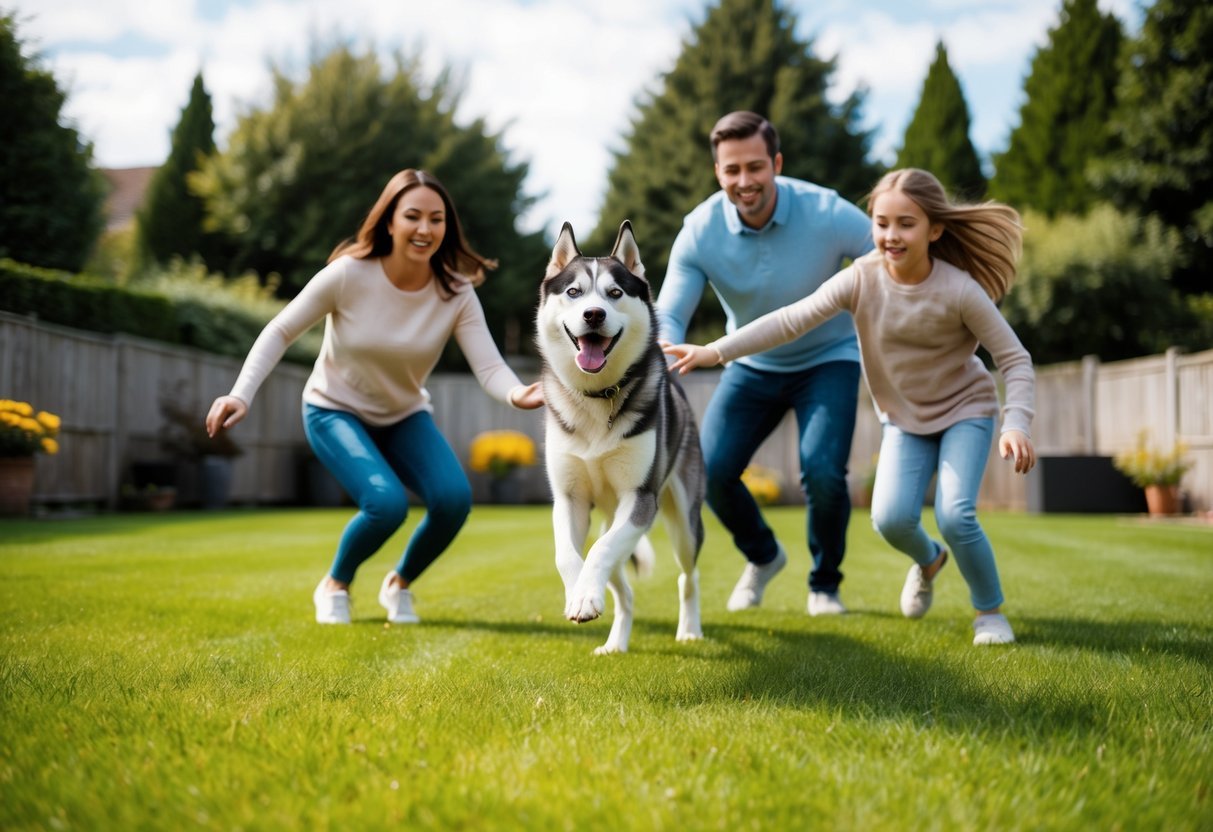
When considering a husky for your family, it’s important to know the key aspects that affect their fit in your home.
This includes understanding their needs, how they interact with kids and other pets, and clearing up any myths surrounding their behavior.
What are the top considerations when thinking about adding a husky to the family?
You should think about your family’s activity level.
Huskies need a lot of exercise.
If your family enjoys outdoor activities like hiking or running, a husky could be a great match.
Grooming is another important factor.
Their thick coat requires regular brushing, especially during shedding seasons.
You need to be ready for that commitment.
How can you tell if a husky will be a good fit with your children?
Look for a husky that is well-socialized.
A calm demeanor around kids is key.
You should also observe how they play.
A husky that enjoys being active and engaging with children is a plus.
Supervision is still necessary.
Even friendly huskies can get excited and play rough.
Always keep an eye on interactions between your husky and younger kids.
What behavioral issues should potential husky owners be aware of?
Huskies can exhibit stubbornness.
Training might take more patience than with other breeds.
Consistent training and clear commands help manage this trait.
Separation anxiety can also occur.
Huskies are social dogs and may struggle when left alone for long periods.
Make sure your routine allows for companionship.
Can huskies coexist peacefully with household cats?
It depends on the individual dog’s personality.
Some huskies have a strong prey drive and may chase cats.
Early socialization can help build a peaceful relationship.
Introduce your pets slowly and monitor their interactions.
A husky that has grown up with cats is often more tolerant.
Do huskies typically bond with one family member or do they show affection to everyone equally?
Huskies are known for their pack mentality and often bond with all family members.
They enjoy being part of the group and will show affection to everyone at home.
Individual bonds can form, depending on the time spent together.
However, they generally don’t favor just one person.
What are some common misconceptions about owning a husky that families should know about?
Many people think huskies are low-maintenance because they look so friendly.
In reality, they require a lot of exercise and mental stimulation.
Another myth is that they cannot be trained.
With the right methods, huskies can learn commands and tricks effectively.
Be prepared to invest time in training.

